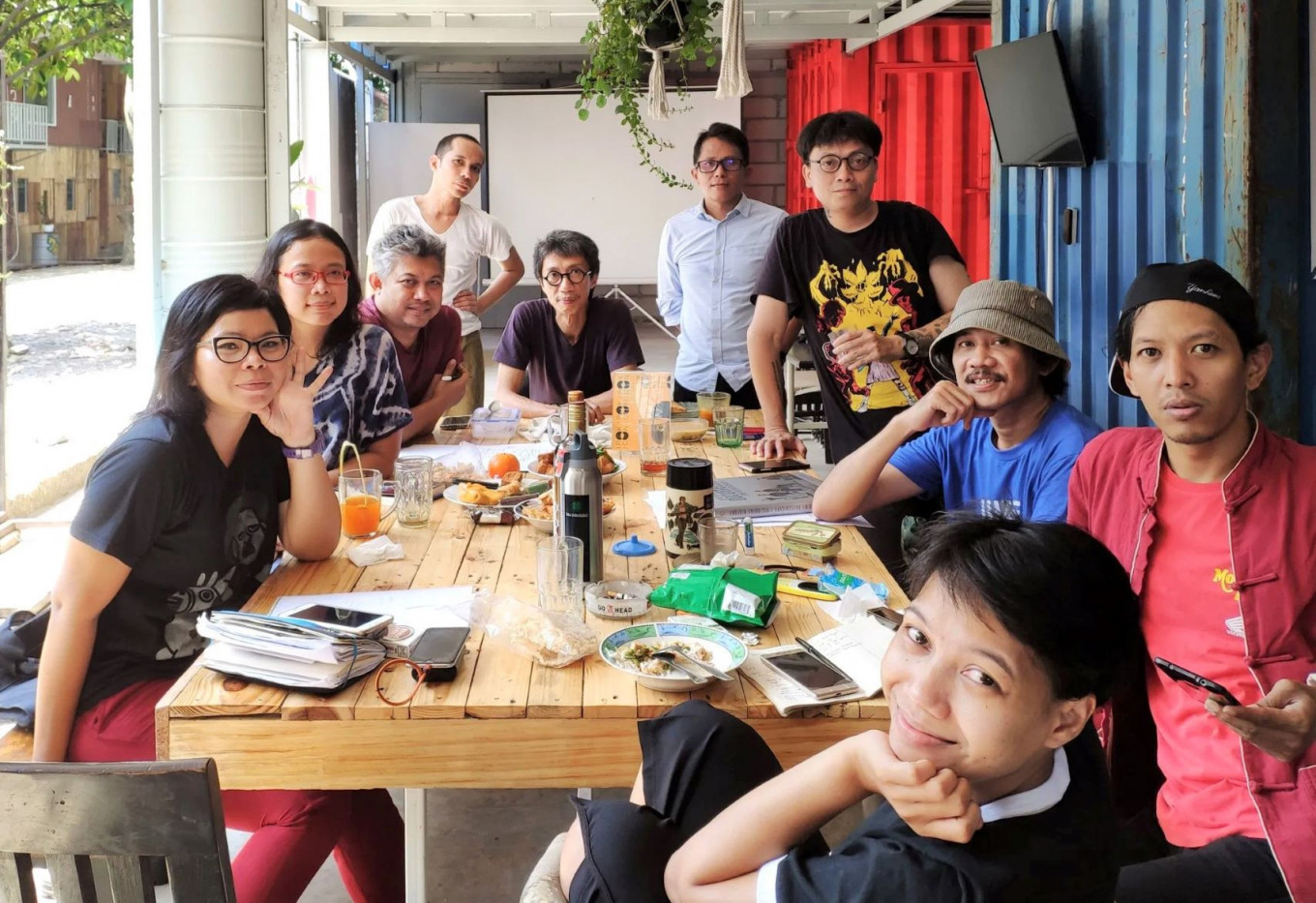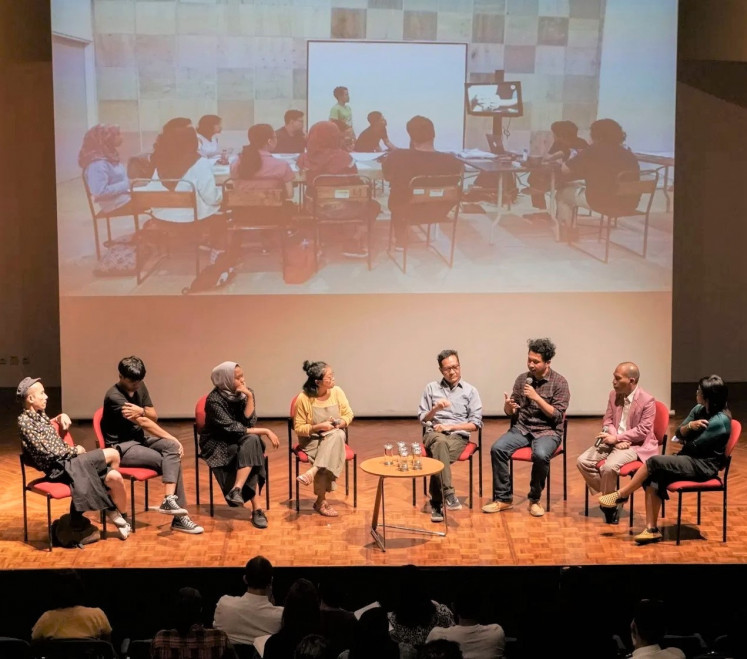‘Lumbung’ for the world: ruangrupa on documenta and the pandemic
The pandemic has thrown much of the world into disarray, including the art world, putting pressure on ruangrupa art collective in its historic role of curating the upcoming documenta.
Change Size

I
t has been a year since Indonesian art collective ruangrupa made history by being the first Asians and first art collective selected to curate the prestigious art exhibition documenta in Kassel, Germany.
Scheduled to run from June 18 to Sep. 25, 2022, the 15th edition of documenta will utilize the concept of “lumbung” (granary), which is championed as a way of managing resources for a collective sustainability.
As ruangrupa gears up for its upcoming project, the pandemic has put many things on hold.
With two years to go, preparation for the art exhibition – held every five years for 100 days – is obviously rigorous. But with the pandemic’s effects reverberating globally, what has become of ruangrupa’s history-making role?
In a virtual discussion hosted by Goethe-Institut, five core members of ruangrupa discussed their efforts so far and what the next couple of years will entail.
Founded in 2000, ruangrupa has made its name in the Indonesian contemporary art scene not just through its participation in numerous illustrious festivals like the Singapore Biennale and Sonsbeek, but also through initiatives like the Gudang Sarinah Ekosistem art space and the Gudskul learning space.
The 10-member core of ruangrupa is composed of Ajeng Nurul Aini, Daniella Fitria, Praptono Indra Ameng, Iswanto Hartono, Julia Sarisetiati, Mirwan Andan, Narpati Awangga, Reza Afisina and Farid Rakun, with Ade Darmawan serving as director.
Farid, an architect and visiting lecturer at the University of Indonesia’s architecture department, reveals that the pandemic has led to some changes of plan, as research visits are a necessity in running art exhibitions.
“But in this kind of situation it’s been made impossible, especially for a collective like ruangrupa. We normally depend on face-to-face meetings instead of [virtual meetings], as the ideas flow out of the human interaction in that space,” he said.
Mirwan said that since the initial announcement, several of the core members had visited various European countries to conduct research, with Ade’s visit to Italy being the latest – managing to fly out just in time before flights stopped because of the pandemic.
Plans for several meetings for this year have fallen through, Farid says, including one in Kassel in March. Instead, technology-assisted interactions must make do, though he noted the measures had given him some thoughts on timing, money and energy-intensive trips.
Indra, who is also manager of the band White Shoes & The Couples Company, said the collective’s goals in the near future were to roll out a public update on their progress and future plans in June, along with an explanation of the implementation of the lumbung concept.
Ruangrupa manager Ajeng, who is responsible for communication and public programs, explained that plans have now turned to Indonesia, researching how local art collectives work and connect.
“The challenge was when we were running all of this research, COVID-19 showed up, which actually bred solidarity organically,” she said.

So far, everything is going to plan, says Ade, with the collective successfully forming an artistic team with several specialist curators and experts. Ruangrupa has also worked with students in Kassel and Jakarta to work on an artistic element of the exhibition.
“What’s more important is that the embryo of lumbung is starting to connect with an international network in Indonesia and Kassel.”
Mirwan added that with the pandemic also affecting the economy and politics, the theme of lumbung became more relevant to explore as an idea and vision,
“We should also note from the beginning that the word lumbung was not because ruangrupa was inspired to discover an apt concept or word for documenta 15, but that lumbung is a concept we’ve run with since our founding,” he says.
“When the offer came and we were asked to propose a concept, we felt that this was the most appropriate to submit given the situation.”
Ajeng highlighted the lumbung concept’s genesis in 2012, when ruangrupa along with other collectives banded together to create a business unit.
“The issues we’ve discussed include external funding that does not last long, unstable government support. At that time, it was created to support the collective’s operational costs by utilizing our skills.”
In 2016, she said they made the decision to move and start something in Pancoran – the Gudang Sarinah Ekosistem – in South Jakarta.
“We learned how to work with at least 30 people to create and run a new system. Two years later we created something that is educational in its core, which has been the dream for ruangrupa and many other collectives,” she explained.
For Farid, lumbung is a faster way to explain the concept, which at its core is the sharing of resources owned by an organization or individual to be used by those in need.
“It’s like owning a drill, for example. Those who own one don’t necessarily use it daily, and someone else can use it in the meantime. Because of this, not everyone in the community needs to own a drill,” he said.
The idea is not uniquely ruangrupa’s, he continues, but the collective is pushing how the concept can affect the practice of arts in ruangrupa and Gudskul, as well as other artists and collectives around the world.
“This crisis has made everyone realize how important it is to work together instead of competing with one another.” (ste)









